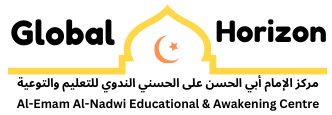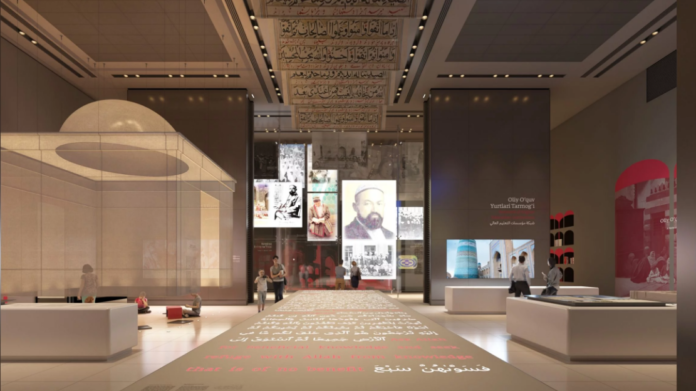The Centre’s ambitious “Roadmap” features 823 scientific projects across three phases, engaging over 100 organizations, including local governments. This initiative will involve more than 4,400 local and international scholars and experts. By championing the Islamic values of knowledge, peace, and tolerance, the Centre will demonstrate Islam’s role not only as a faith but also as a driver of scientific advancement, cultural exchange, and mutual respect.
The Centre’s content will be thoughtfully structured into five key sections: Pre-Islamic Civilizations, The First Renaissance Period, The Second Renaissance and the Khanate Period, Uzbekistan in the 20th Century, and The New Renaissance, New Thought. A particular focus will highlight the profound global contributions of influential scholars like Al-Khwarizmi, Al-Farabi, and Ibn Sina. Additionally, a dedicated section will inspire contemporary women by showcasing the achievements of remarkable historical figures such as Bibikhanum, patrons of science and the arts.
As this significant project progresses, the Centre of Islamic Civilization in Uzbekistan is poised to be a crucial force in countering modern extremism and fostering peace through education, serving as a vital platform for global dialogue and understanding.
Uzbekistan, a land steeped in history and intellectual heritage, is set to reinforce its position as a global hub for Islamic scholarship with the establishment of the Centre for Islamic Civilization in Tashkent. Located within the historic Hazrat Imam Complex, this ambitious project, initiated by presidential decree, aims to preserve Islamic cultural heritage while fostering education, scientific research, and interfaith dialogue. With its grand architectural design, extensive research agenda, and collaborations with leading international institutions, the Centre is poised to become a beacon of knowledge, promoting the rich contributions of Islamic civilization to global progress.
A Monument to Knowledge and Heritage:
Designed by Abdukahhor Turdiyev, the Centre spans 7.5 hectares and features a three-storey, 42,000-square-metre structure crowned by a striking 65-metre dome, enhancing Tashkent’s skyline. The design harmoniously blends traditional Uzbek aesthetics with modern technology, symbolizing a bridge between past and future.
Key spaces within the Centre include:
- The Quran Hall, housing the 7th-century Hazrat Uthman’s Quran, one of the oldest surviving Quran copies.
- The Museum of Islamic Civilization (8,350 sq. m), showcasing rare manuscripts, scientific instruments, and artefacts.
- A vast library containing over 200,000 printed books, ancient manuscripts, and more than one million digitized sources, serving as a global research hub.
- A 550-seat conference hall for academic and cultural events.
- A restoration laboratory dedicated to preserving historical texts and artefacts.
Global Collaborations
The Centre has secured partnerships with UNESCO, ISESCO, and the Oxford Centre for Islamic Studies, the Islamic Arts Museum Malaysia, the Süleymaniye Library (Turkey), and the Bologna University Library (Italy). These collaborations will facilitate international exhibitions, digitization projects, and scholarly exchanges, reinforcing the Centre’s role as a nexus for global Islamic studies.
Research and Academic Contributions
The Centre’s “Roadmap” outlines 823 scientific research projects to be conducted in three phases, involving over 4,400 scholars from Uzbekistan and abroad. This initiative reflects a revival of Islamic scientific heritage, emphasizing the works of scholars such as:
- Al-Khwarizmi (pioneer of algebra)
- Al-Farabi (philosopher and polymath)
- Ibn Sina (Avicenna) (father of early modern medicine)
These projects will explore Islamic contributions to mathematics, astronomy, medicine, and philosophy, reinforcing the notion that Islamic civilization was a driving force behind the European Renaissance.
Countering Extremism through Education
One of the Centre’s key missions is countering extremism by promoting Islamic values of peace, tolerance, and intellectual inquiry. By highlighting the historical achievements of Muslim scholars in science and culture, the Centre aims to debunk extremist narratives that distort Islamic history.
Dr. Ahmed Dalal, a leading scholar of Islamic intellectual history, notes:
“The Islamic tradition has always valued rational inquiry and scientific discovery. Institutions like this Centre are crucial in reclaiming that narrative from extremist ideologies.”
Cultural and Historical Narratives
The Centre’s exhibitions are structured into five thematic sections:
1. Pre-Islamic Civilisations – Exploring Central Asia’s ancient heritage.
2. The First Renaissance Period – The Golden Age of Islamic science (8th–14th centuries).
3. The Second Renaissance and the Khanate Period – Timurid and Uzbek scholarly traditions.
4. Uzbekistan in the 20th Century – Islamic thought under Soviet rule.
5. The New Renaissance, New Thought – Modern contributions to Islamic scholarship.
A dedicated section will also celebrate historical female figures, such as Bibi-Khanym, who were patrons of science and arts, inspiring contemporary women in academia.
The history of these eras unfolds through a rich tapestry of artifacts, handwritten documents, photographs, and engaging multimedia technologies. A special focus illuminates the diverse intellectual pursuits of prominent scholars and thinkers, including Al-Khwarizmi, Al-Farghani, Al-Farabi, Al-Beruni, Ibn Sina, Mahmud Zamakhshari, Mirzo Ulugbek, Alisher Navoi, Ali Kushchi, and many others. Furthermore, the significant contributions of distinguished thinkers such as Imam Bukhari, Imam Termizi, Hakim Termizi, Abu Mansur Moturidi, Abu Muin Nasafi, Kaffol Shashi, Abdulkhalik Gijduvani, Najmiddin Kubro, Burhaniddin Marginoni, Bahauddin Naqshband, and Khoja Akhror Vali to the advancement of Islamic education are explored in detail.
A Global Hub for Islamic Scientific Scholarship
The Centre of Islamic Civilisation in Uzbekistan represents a bold step in reviving Islamic intellectual heritage. By integrating cutting-edge technology with historical preservation, fostering international academic collaboration, and promoting interfaith dialogue, the Centre is set to become a global leader in Islamic studies.
As noted by historian Jonathan Bloom (2020), “The Islamic world’s contributions to science, philosophy, and culture are often overlooked. Institutions like this Centre are essential in correcting that oversight.”
With its grand opening, the Centre will not only preserve the past but also shape the future, reinforcing Uzbekistan’s role as a bridge between East and West, tradition and modernity.
Thank you,
Ahmad Suhaib Nadvi
Email: info@al-emam.org
Global Islamic Horizon
Al-Emam Al-Nadwi Education & Awakening Center
Know more on this:
https://president.uz/en/lists/view/7843
https://amorimcorksolutions.com/en-us/materials-applications/construction/projects/the-center-for-islamic-civilization-tashkent-uzbekistan/



